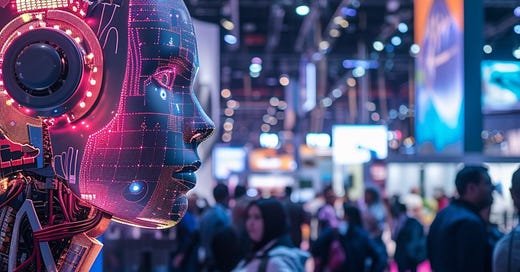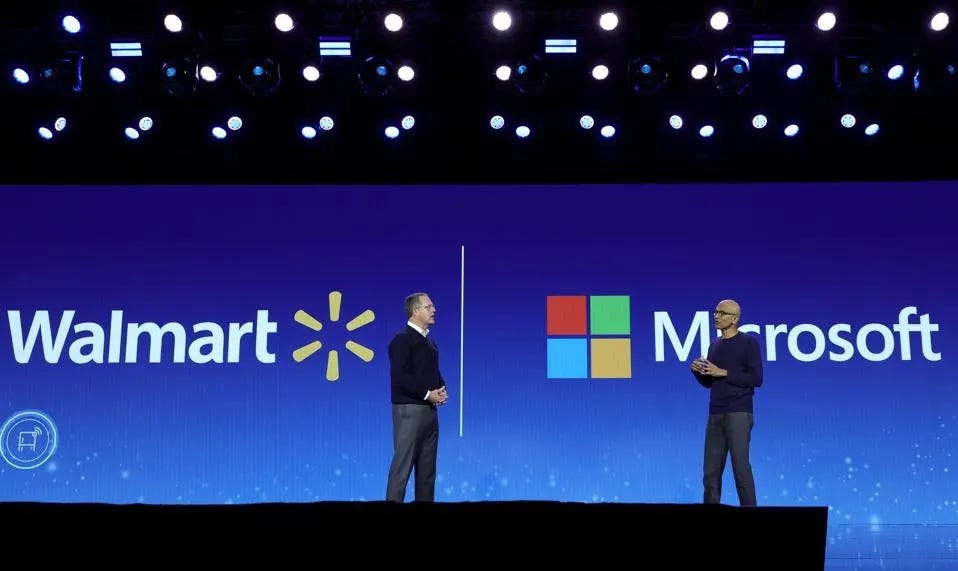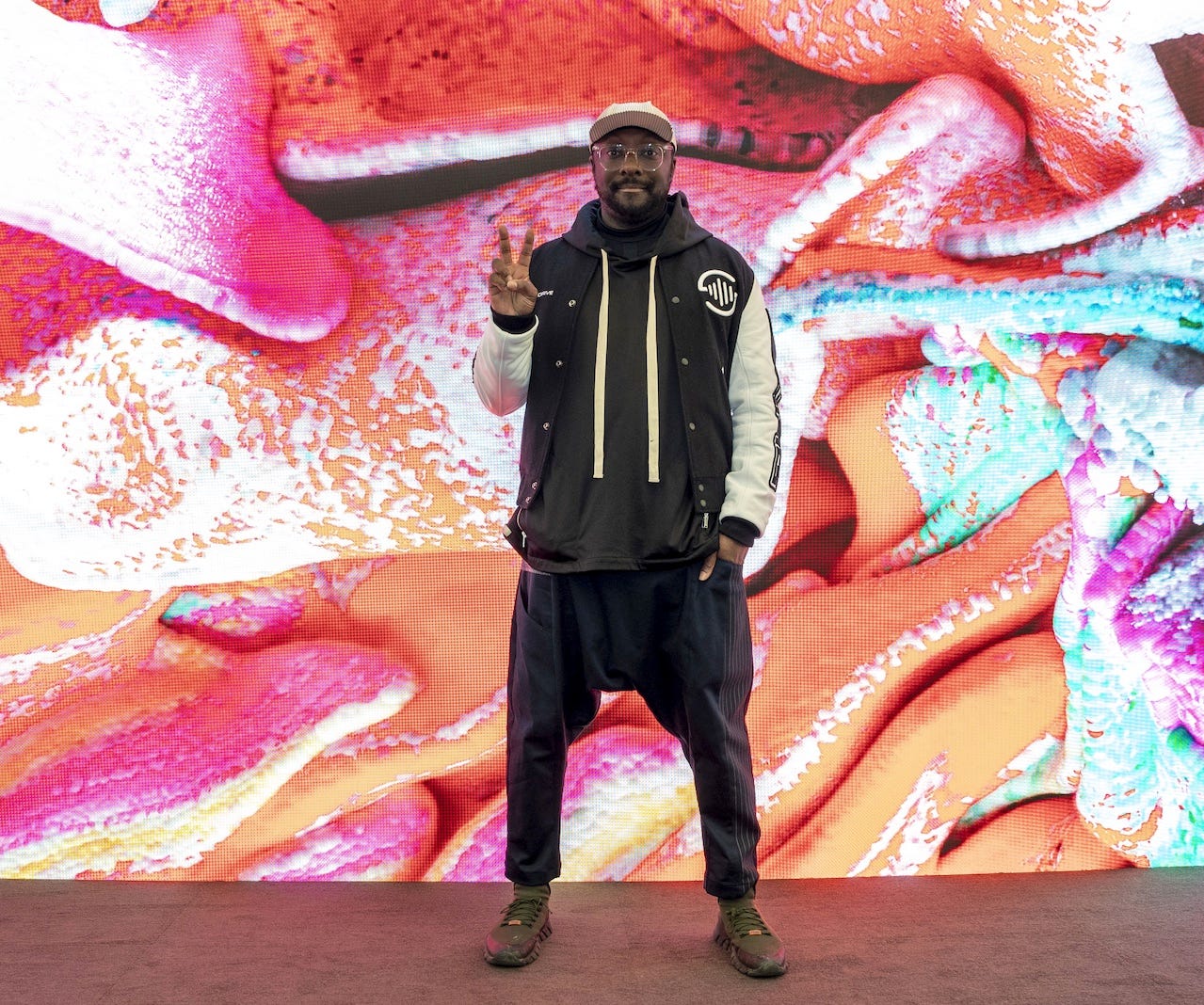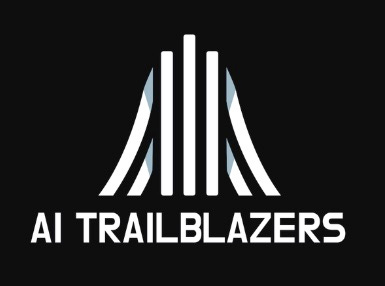Welcome to the Savvy AI newsletter. Three to four times a month, I explore what the AI Era means for marketing and business. In this space, I also share excerpts from my forthcoming book on Marketing with AI. If you find the insights valuable, share the newsletter with others and encourage them to subscribe. And if it's not your cup of tea, I completely understand if you choose to unsubscribe.
At the Consumer Electronics Show (CES) in Las Vegas earlier this month, a torrent of technological innovations were unveiled. The show was a spectacle of digital monitors capable of predicting health issues before they manifest, pet fitness collars that monitor every aspect of a dog's life, vehicles with interchangeable upper bodies, and flat-screen TVs so advanced they're indistinguishable from glass windows!
Yet, amidst this technological exuberance, two pressing questions loomed large in my mind as I walked the convention floor. How many of these technologies truly transition from innovation showpieces to viable, commercial products on scale that help people? And how many of the companies behind these innovations are mindful of not just the opportunities but the ethical questions surrounding the use of AI?
Prioritizing People over AI
At the forefront of CES was the unmistakable dominance of AI, permeating every aspect of the show. A poignant moment for me was the Walmart keynote that featured Walmart CEO, Doug McMillon, with Microsoft CEO, Satya Nadella, presenting a compelling counterpoint to the effective acceleration movement espoused by the likes of Marc Andreessen of Andreessen Horowitz and Garry Tan of Y Combinator. The keynote highlighted a critical concern that I share: the importance of finding a balance between rapid technological advancements and their societal risks. For Walmart that means adaptive retail, where it adapts to every customer’s needs while still being sensitive to the broader human questions surrounding the use of AI technology to deliver on that promise.
Here are the quotes from Mr. McMillon’s keynote that capture that tension -
One path is to completely prioritize technology to maximise what's possible without considering potential implications. The view is that if we can use technology to do something, it's inevitable that it'll happen, so we should just go fast and exploit what's possible. It's a society driven by data and run by increasingly intelligent software. It's a world where technology streamlines operations without much if any concern for the people involved.
Then when presenting the alternative path, he said -
It's one where the benefits of technology are pursued, but people are considered along the way. It's about our heads and our hearts. The underlying principle is that we should use technology to serve people, not the other way around. This path enables people to do things in more efficient and enjoyable ways.
And finally bringing it home with the Walmart philosophy -
We love what technology can do, but we're building it in a way that creates better careers at the same time. It creates better customer experiences and a stronger business. No doubt some tasks will go away and some roles will change - and some of them should, like the ones that involve lifting heavy weights or doing repetitive tasks. As that's happening, we're designing new roles that our associates tell us are more enjoyable and satisfying and also often result in higher pay.
Fast forward to The World Economic Forum, where Mustafa Suleyman, CEO of Inflection AI and a founding member of Google DeepMind, expressed that AI is, in essence, a job replacement tool over the long term unless we carefully consider its integration with humans. This perspective also resonates with me; I share the concern and believe it is crucial to consciously prioritize people over AI. This means keeping human dignity, equity, empowerment and respect at the forefront while implementing AI. Additionally, it means privileging unique human qualities of personal history, experience, memory, perception, self-awareness, time, taste, emotion and curation above all else.
Open versus Closed AI
The debate of prioritizing people over AI mirrors a similar dichotomy between open-source and closed paths to building and eventually deploying artificial general intelligence (AGI) solutions. Microsoft, OpenAI, and Google seem to align on one side of this debate, while Meta, somewhat unexpectedly, with IBM, Dell, Sony, AMD & Intel positions itself on the other through a newly created entity called The AI Alliance, aiming for maximum open-source engagement.
I believe open source AI development will accelerate innovation and enhance transparency, essential for healthy regulatory oversight and aligning with broader societal concerns that we should all be worried about. Enhanced transparency in open source AI is also critical for scrutinizing algorithms and reducing biases (and there are many!). By democratizing access, open source AI narrows the technology gap, enabling smaller entities and individuals to contribute and benefit, thereby improving accessibility and governance in the field. The AI Alliance includes several universities and startups too and will serve to democratize AI innovation beyond Microsoft, OpenAI and Google.
But there’s more, an open source model also supports robust security and ethical standards, addressing concerns around unethical uses and the potential lack of human values in the AI models. It also allows universities to participate in the AI development and ensures long-term sustainability, independent of any single company's financial health. The debate about AI's future trajectory underlines the importance of developing the technology in responsible, transparent, and equitable ways, so that it meets the needs and values of a diverse global community. At Davos, Will.i.am captured this sentiment when he said,
That’s kind of inhumane, how we can have a world where items have more funding to be intelligent than humans. So that’s what I work on with our foundation, and [I] find, every year, raising money for AI is easier than raising money for “HI”—for human intelligence. For some reason, people don’t seem to find it urgent to bring people up to speed. So that’s troubling. As much as I love technology ... it just breaks my heart that we’re not uploving. We have to reskill, and we have to upskill. But no one’s talking about uploving, and how we could lead with empathy and not lead with greed.
An Opportunity to Lead
In the marketing domain, our roles, as we enter the AI Era, are not only necessary but also potentially transformative. As we develop brand strategies, engage consumers, drive customer acquisition, and influence product development, our relationship with the technology giants at the forefront of the AI revolution becomes more important. Many of these giants, like Google, Meta, and Amazon depend on advertising revenue to fund their AI investments. Using our influence to force greater accountability, transparency, collaboration and humanity, will only benefit society as a whole.
Google's recent layoffs, as I previously predicted, show AI's growing impact on jobs, notably in roles tied to performance marketing. Regrettably, it seems likely that we'll see more job displacement in the year ahead. However, there is a silver lining: this harsh reality could grant marketers a new purpose - to prepare, guide, and up-skill teams for a future where AI serves not as a job displacement tool, but as a collaborative partner. Or in Will.i.am’s words, a world in which marketers lead by driving human upskilling and uploving. Starting with marketing departments and potentially spreading into the broader marketing and business ecosystem, marketers are uniquely positioned to help Corporate America in developing human capabilities alongside anticipated AI advancements.
More broadly, changes in the corporate world, propelled by the integration of AI, underscores the timely founding of AI Trailblazers. And with its launch at CES, we have already seen that when leaders of AI companies, chip innovators, leading brands, venture capitalists, founders, academics and AI visionaries unite for a dialogue and dinner, it is just extraordinary.
That was the essence of the overbooked inaugural AI Trailblazers CES Dinner, a groundbreaking event in collaboration with The New York Times and Pixis. The event included Chris Wiggins, the Chief Data Science Officer at The NYT and author of How Data Happened, sharing his perspective on the AI Era in an interview with Greg Kahn. As AI takes the business world by storm, AI Trailblazers, is committed to helping ensure that the progress is also human-centered and responsibly guided. It aims to do this by providing a safe space for real, honest exchanges of what’s working and what isn’t.
Here are a few photographs from the AI Trailblazers CES Dinner in Las Vegas. Join the community and help shape the future.
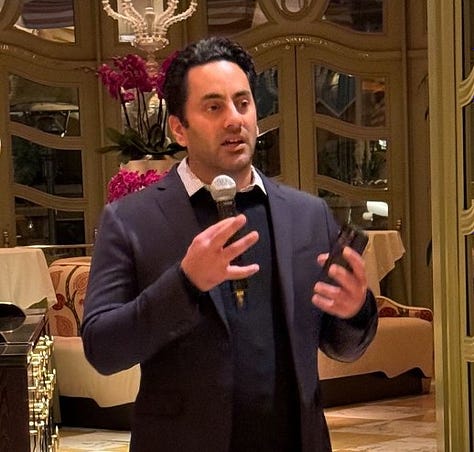

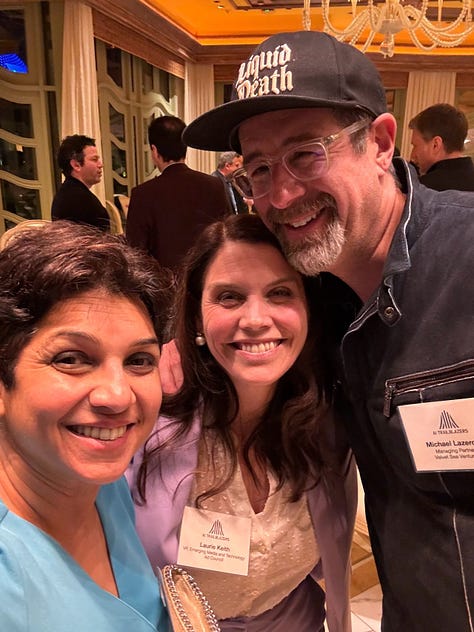
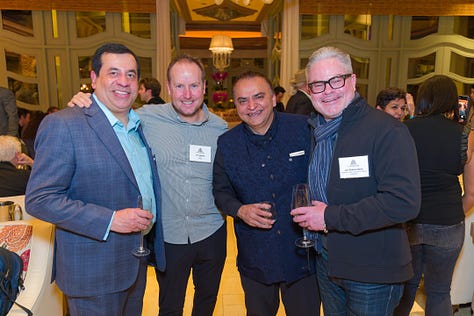
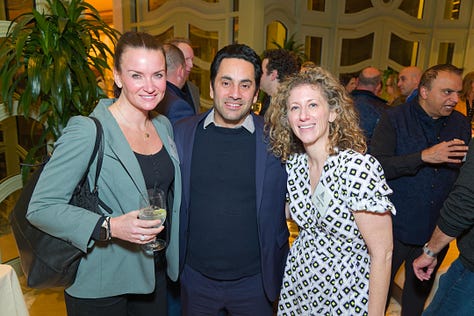

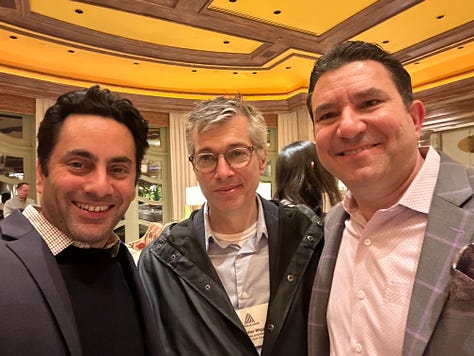
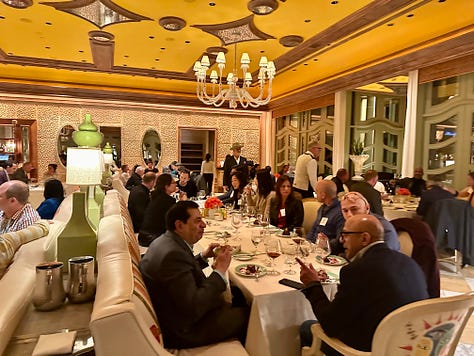

Co-founded by Amit Shah, Greg Kahn and Shiv Singh, AI Trailblazers is an exclusive, member-only community focused on thought leadership, uniting a diverse group of professionals including marketers, technologists, entrepreneurs, and venture capitalists, all driven by an interest in artificial intelligence. Learn more.
Recent Savvy AI Articles
Brace for Impact: GenAI's Role in 2024 (December 2023)
Elon Musk Criticizes Marketers (December 2023)
Research in the AI Era. Evolution or Extinction (November 2023)
Thriving Professionally in the AI Era (November 2023)
The Dual Horizon of AI's Promise and Peril (October 2023)
What I’m reading
Generative artificial intelligence will lead to job cuts (FT.com)
AI Will Transform the Economy. Let’s Make Sure It Benefits (IMF)
This A.I. Subculture’s Motto: Go, Go, Go (The New York Times)
Where I’m going and where I’ve been
It’s been an extremely busy January with trips to Indianapolis, Las Vegas and most recently Guadalajara, Mexico for speaking engagements and board meetings. I hope to be local for a few weeks while I focus on my book now.
I would welcome the opportunity to speak at your event or educate your marketing or business teams on succeeding in the AI Era. Email to discuss further.
What I’m writing about this week
I'm in the process of writing my third book, centered on artificial intelligence in the realms of business and marketing. This week, I'm editing a chapter on using generative AI to develop groundbreaking creative. Stay tuned for further updates and insights from the forthcoming book.

